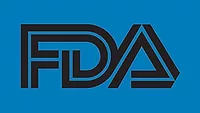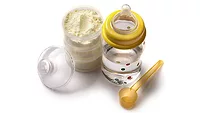FDA Clarifies Infant Formula Enforcement Discretion Policy

Credit: wit88_/iStock / Getty Images Plus via Getty Images
On May 20, the U.S. Food and Drug Administration (FDA) held a webinar to expand upon and clarify the agency’s Guidance for Industry on Infant Formula Enforcement Discretion Policy, which was announced earlier in the week. The webinar addressed who can seek enforcement discretion under the temporary guidance, what information manufacturers will need to send to FDA to qualify for enforcement discretion, and the import process for international manufacturers that are granted enforcement discretion. The webinar hosts also answered attendees’ questions.
FDA began by explaining that the temporary guidance is intended to allow for companies who do not typically sell infant formula in the U.S. to do so. The guidance also grants flexibilities that may allow for manufacturers who already produce infant formula to increase their output. FDA explained that the agency is already having discussions with established infant formula manufacturers about how they can increase production, as well as determining if reallocation of distributed products can be achieved. FDA believes that its actions, along with Abbott Nutrition resuming production in the near future, will increase the supply of infant formula in the U.S. FDA also stated that infant formula stock in retail stores is currently improving.
FDA outlined which companies may be eligible to seek enforcement discretion, while stressing that the agency will prioritize enforcement discretion decisions based on companies’ ability to produce infant formula with adequate nutritional value and acceptable labeling. Eligible companies include infant formula manufacturers in one or more of the following categories:
- Domestic manufacturers that only manufacture for export from the U.S.
- Foreign manufacturers that do not currently import infant formula to the U.S.
- Manufacturers that may help address shortages by changing production sites, changing production practices, or changing an existing infant formula.
FDA stated that companies seeking enforcement discretion should send certain information to infant_formula_flexibility@fda.hhs.gov. The required information that is expected to be submitted is outlined in part III.D of the guidance, and includes, for each infant formula product and manufacturing facility:
- The product’s specific name and other applicable product identification information [E.g., number and size of retail container, batch and lot number(s), product identification code]
- Countries where the product is marketed and for how long the product has been in the market
- Quantity of the product intended for introduction into U.S. commerce
- "Use by” dates
- Whether a one-time shipment or multiple shipments are intended
- Names and locations of the manufacturing facilities where the product is made
- Distribution plans
- The product’s full quantitative formulation
- The product label
- Description of the product packaging
- Summary of nutrient test results
- Summary of test results for Cronobacter sakazakii and Salmonella conducted at the final product stage
- Good Manufacturing Practices (GMPs) certification
- Process flow diagrams and written narratives
- FDA Food Facility Registration numbers.
After a company submits a request for enforcement discretion, FDA will send a “no objection” letter to eligible manufacturers. Only products reviewed by FDA will be allowed distribution into the U.S.; FDA asks manufacturers seeking enforcement discretion not to ship any products to the U.S. without having received a “no objection” letter. At the time of import, the importer will submit entry information to U.S. Customs and Border Protection (CBP) in accordance with normal import procedures. CBP and FDA will follow normal import procedures to facilitate the product’s entry into the U.S. and move the products into established supply channels.
In the question-and-answer portion of the webinar, FDA addressed common questions from firms seeking enforcement discretion. FDA clarified that qualifying for enforcement discretion does not provide long-term access to the U.S. market; the enforcement discretion period is set to expire on November 14, 2022. If the enforcement discretion period is to be extended, a public announcement will be made.
Another question pertained to GMPs and what a certification for GMP would look like. FDA stated that a “certification” should be a statement of proof from a responsible representative at a firm that GMPs, as outlined by FDA, are in place at the manufacturing facility.
Other common questions involved the specifics of labeling. FDA stated that whether or not product labels need to be over-labeled for the U.S. market will be determined on a case-by-case basis. FDA does consider English labeling, full label translations, or English product inserts to be essential. However, FDA expects to exercise flexibility regarding metric to imperial conversions.
Looking for quick answers on food safety topics?
Try Ask FSM, our new smart AI search tool.
Ask FSM →
FDA also clarified that the agency is looking for manufacturers that can provide “more than a few cases” of product, that the agency will inform the public of which companies qualify for enforcement discretion, and that there is no “hard-and-fast rule” regarding nutrient requirements under the enforcement discretion.
A recording of the webinar can be viewed here.
Update, November 15, 2022: Effective November 14, 2022, the FDA is no longer accepting requests for enforcement discretion for certain requirements that apply to infant formula based on the May 2022 guidance.









